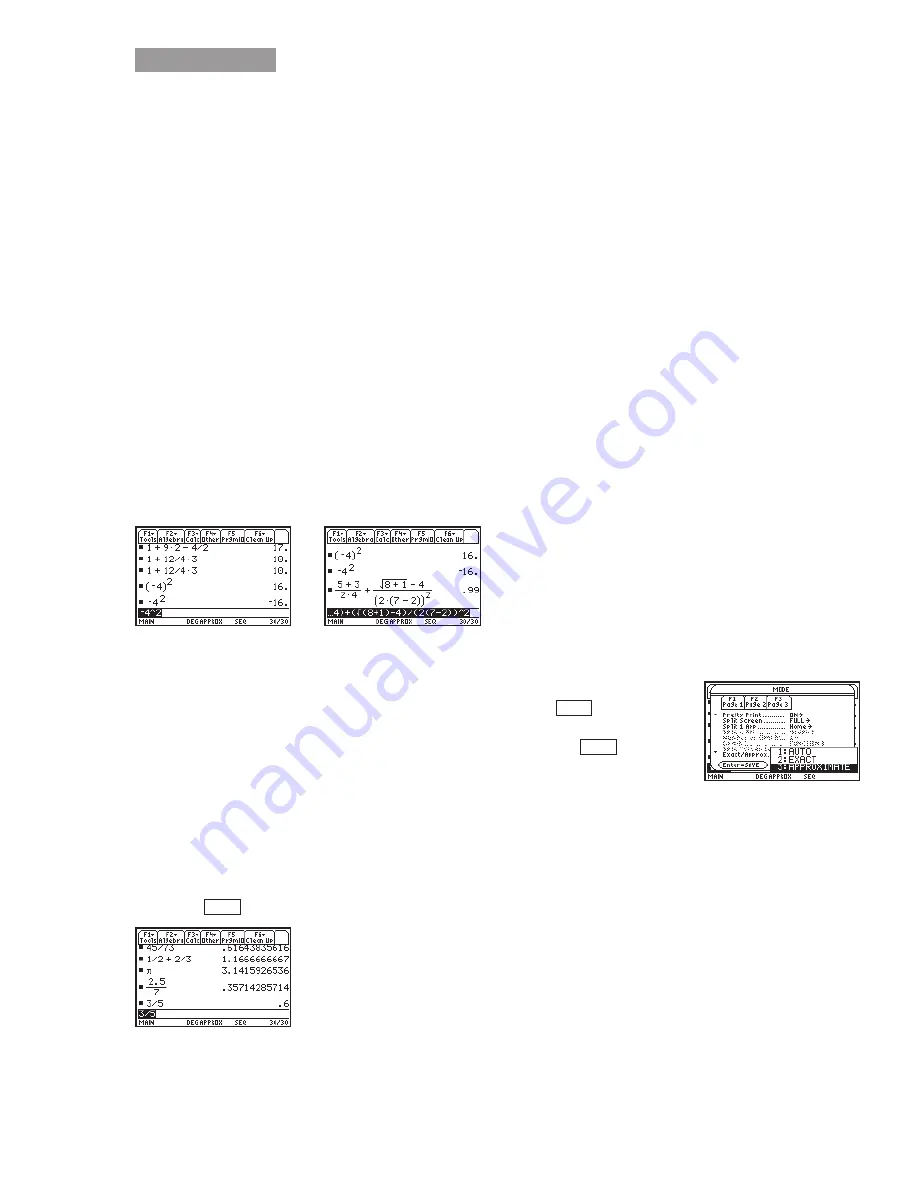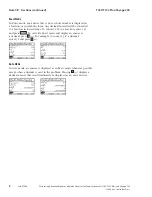
Discovering Advanced Algebra Calculator Notes for the Texas Instruments TI-89, TI-92 Plus, and Voyage 200
CHAPTER 0
1
©2004 Key Curriculum Press
Note 0A • Order of Operations
To evaluate expressions, the calculator uses the standard order of operations,
PEMDAS (parentheses, exponents, multiplication and division, addition and
subtraction). For example, when you enter the expression
1
12
4*3
a. The calculator reads no parentheses or exponents.
b. The calculator does multiplication and division from left to right: it
evaluates 12
4 as 3 to get 1
3 * 3, and it evaluates 3 * 3 as 9 to
get 1
9.
c. The calculator does addition and subtraction from left to right: it
evaluates 1
9 as 10.
Negation is on the same level as multiplication, so powers are calculated
before negation. For example,
4^2
evaluates as
16
. To square
4, you use
parentheses:
(
4)^2
.
Although there are keys for the brackets,
[ ]
, and braces,
{ }
, you use for
grouping when working on paper, the calculator uses them for other things.
To group on the calculator, you use only the parentheses keys. So, to evaluate
the expression
5
2
•
4
3
, you enter
(5
3)
(2*4)
(
(8
1)
4)
(2(7
2))
2
.
Study these examples and verify the results on your calculator.
Note 0B • Fractions
Whether the calculator displays an answer as a fraction or as a decimal
depends on the
Exact/Approx
setting on the Mode screen. Press
, arrow
down to
Exact/Approx
, and press the right arrow key to see the three options:
AUTO, EXACT, APPROXIMATE
. Select the setting you want and press
twice to confirm and return to the Home screen. Your choice is shown in
the status line at the bottom of the Home screen. (See Note 1C for more
on moving to and from the Mode screen.)
Approximate Mode
In Approximate mode all answers are displayed as decimals. Any fraction
entered will be converted to a decimal. To convert
3
5
to a decimal, enter
3
5
and press
.
ENTER
ENTER
MODE
8
1
4
(2(7
2))
2
C H A P T E R 0
Calculator Notes for the TI-89, TI-92 Plus,
and Voyage 200
(continued)




















